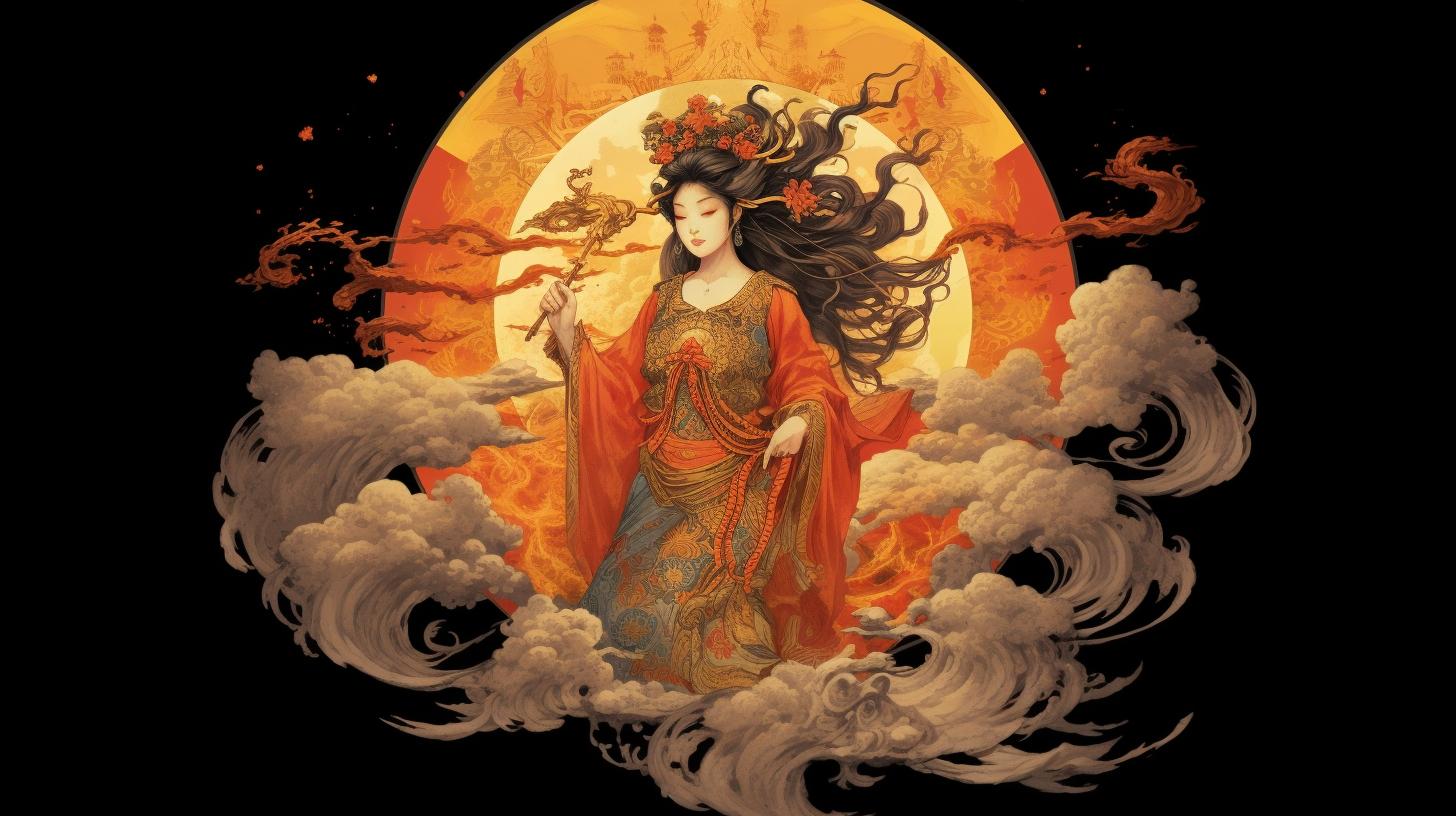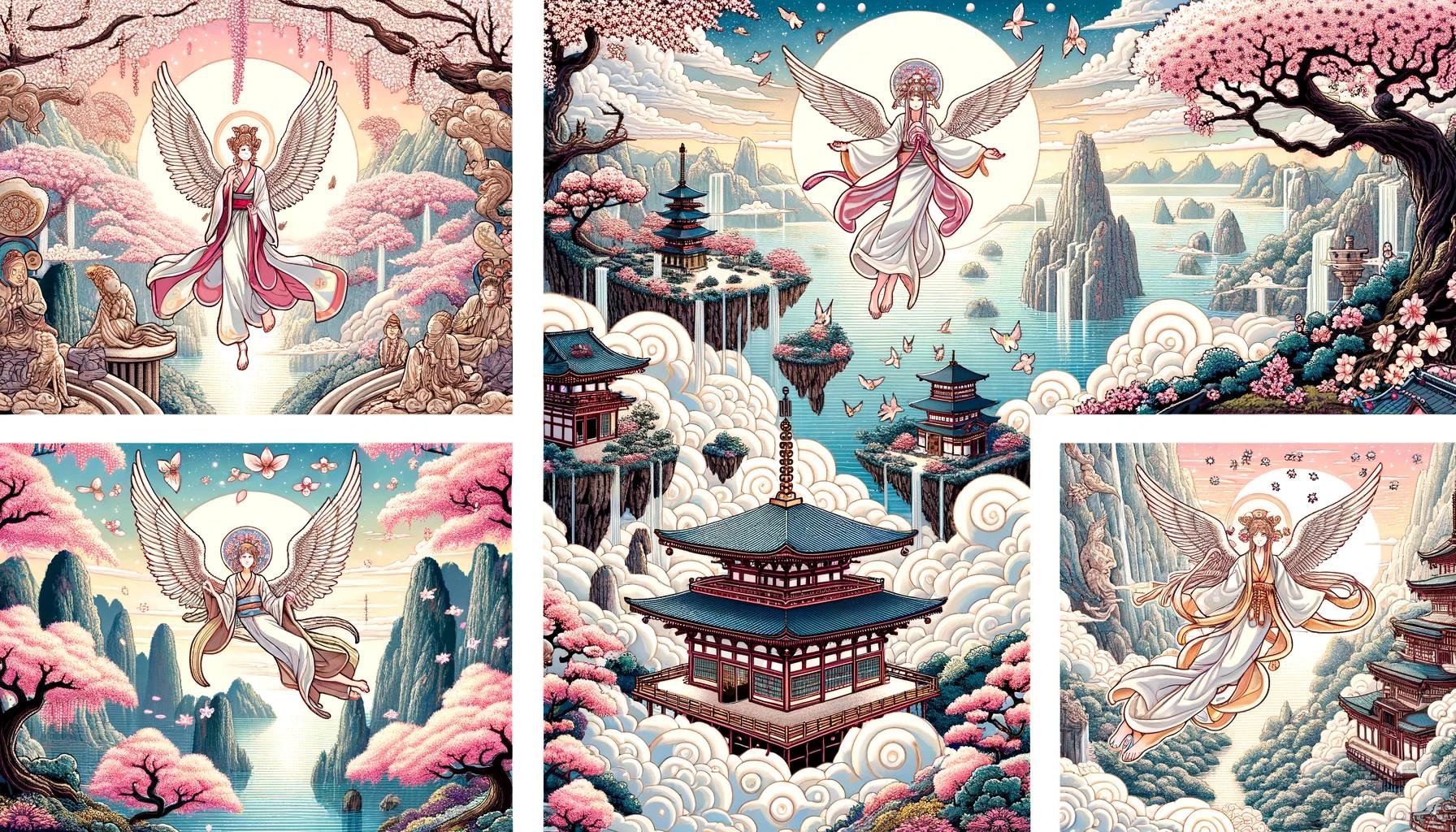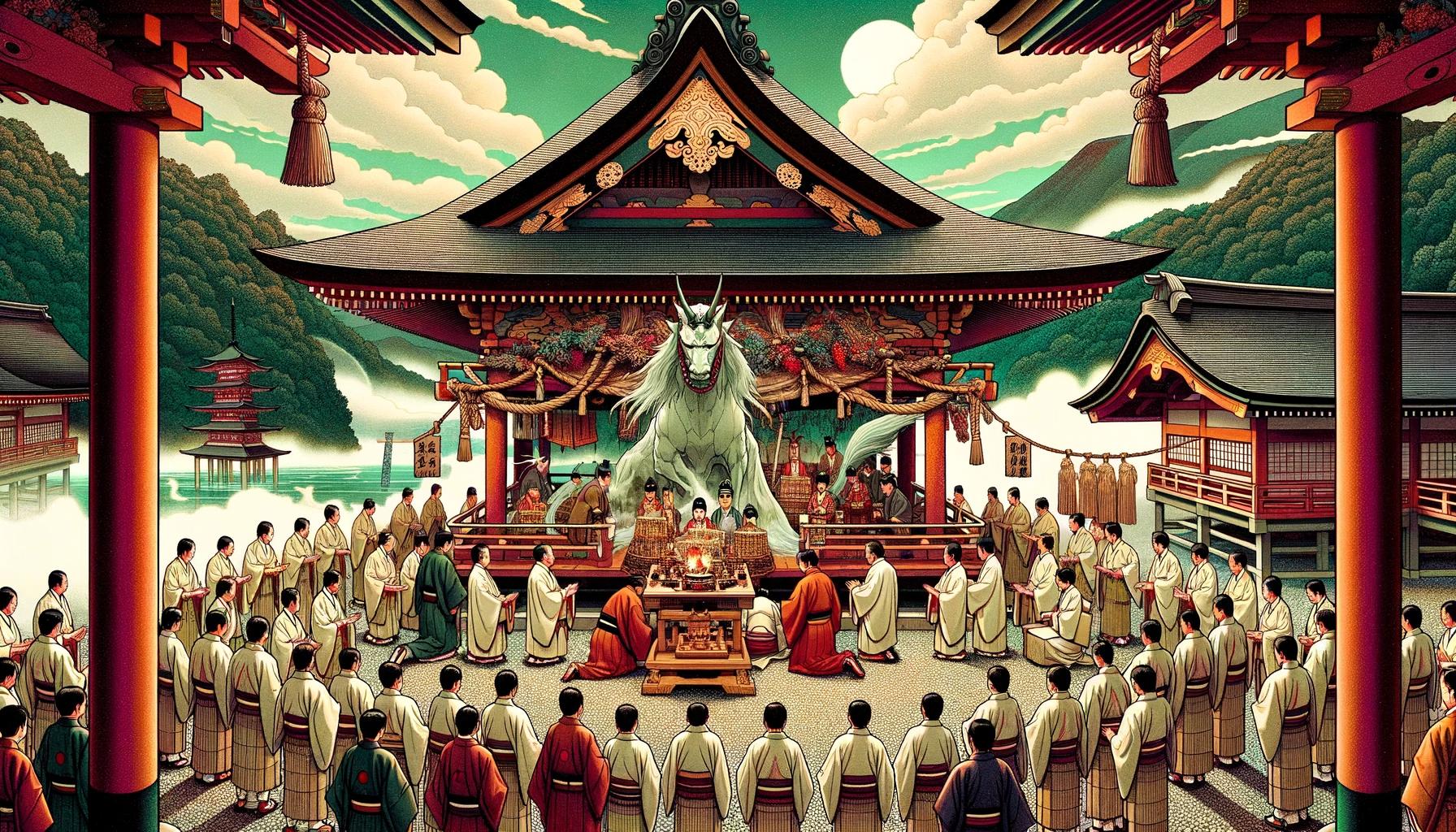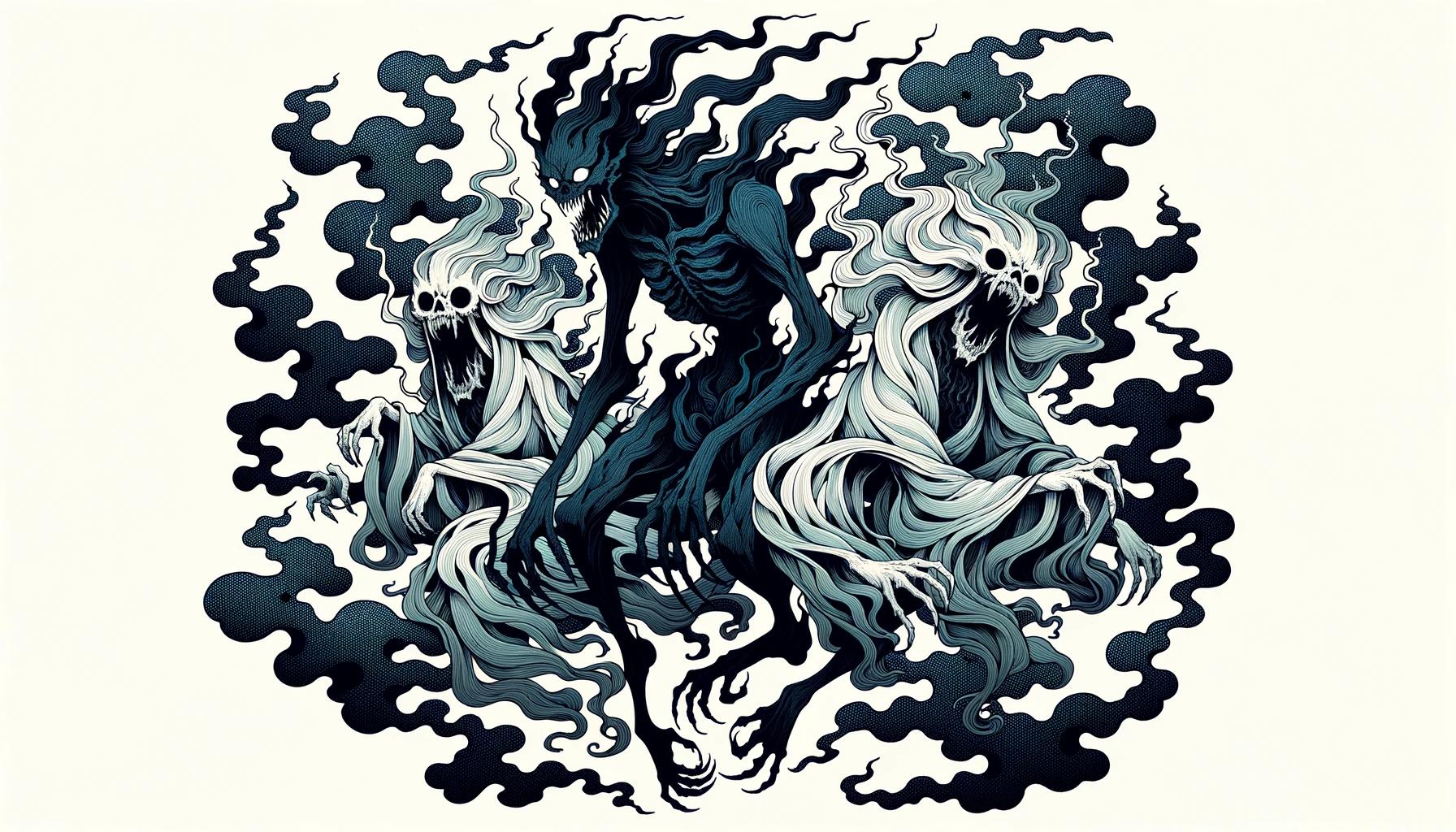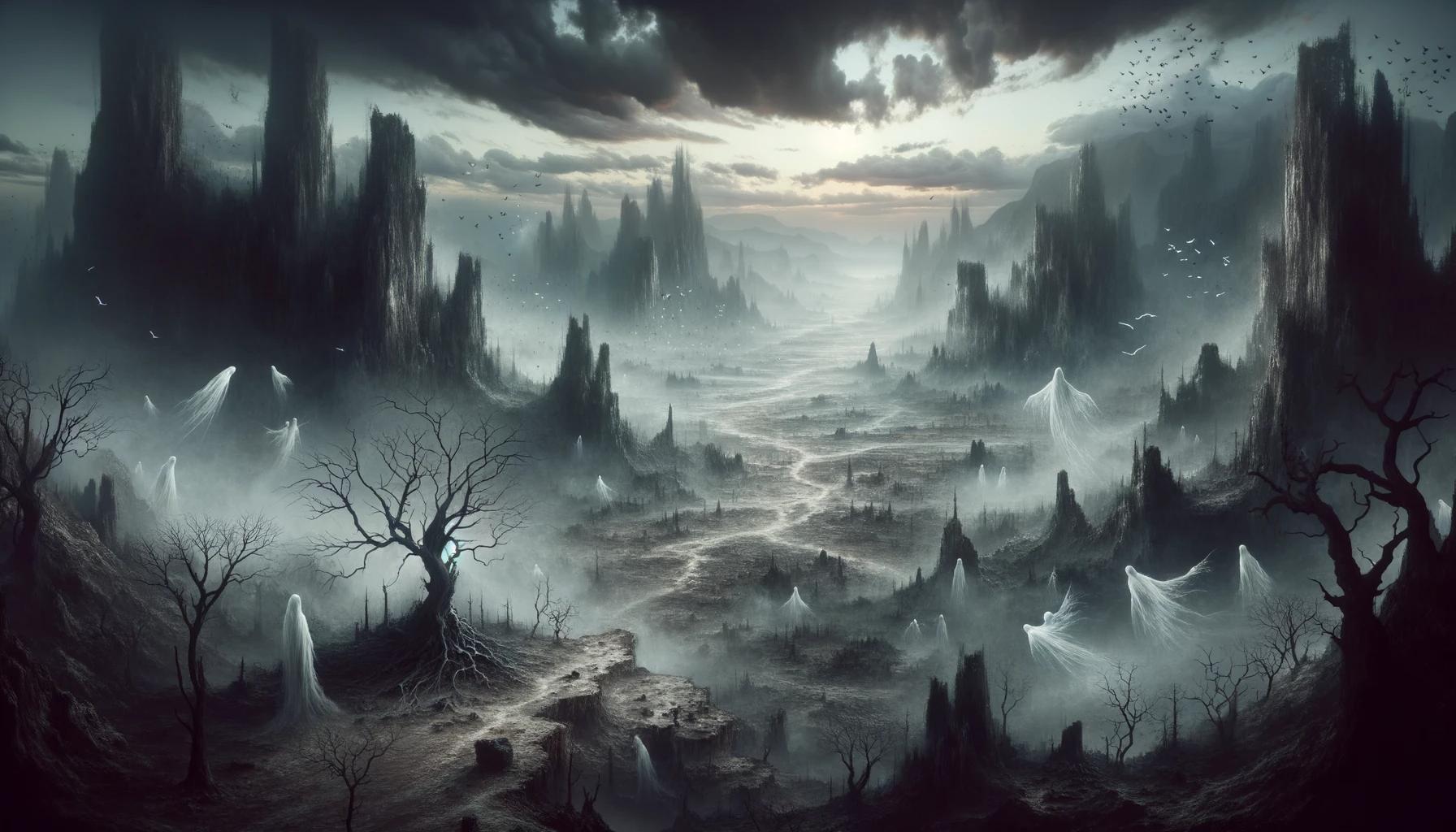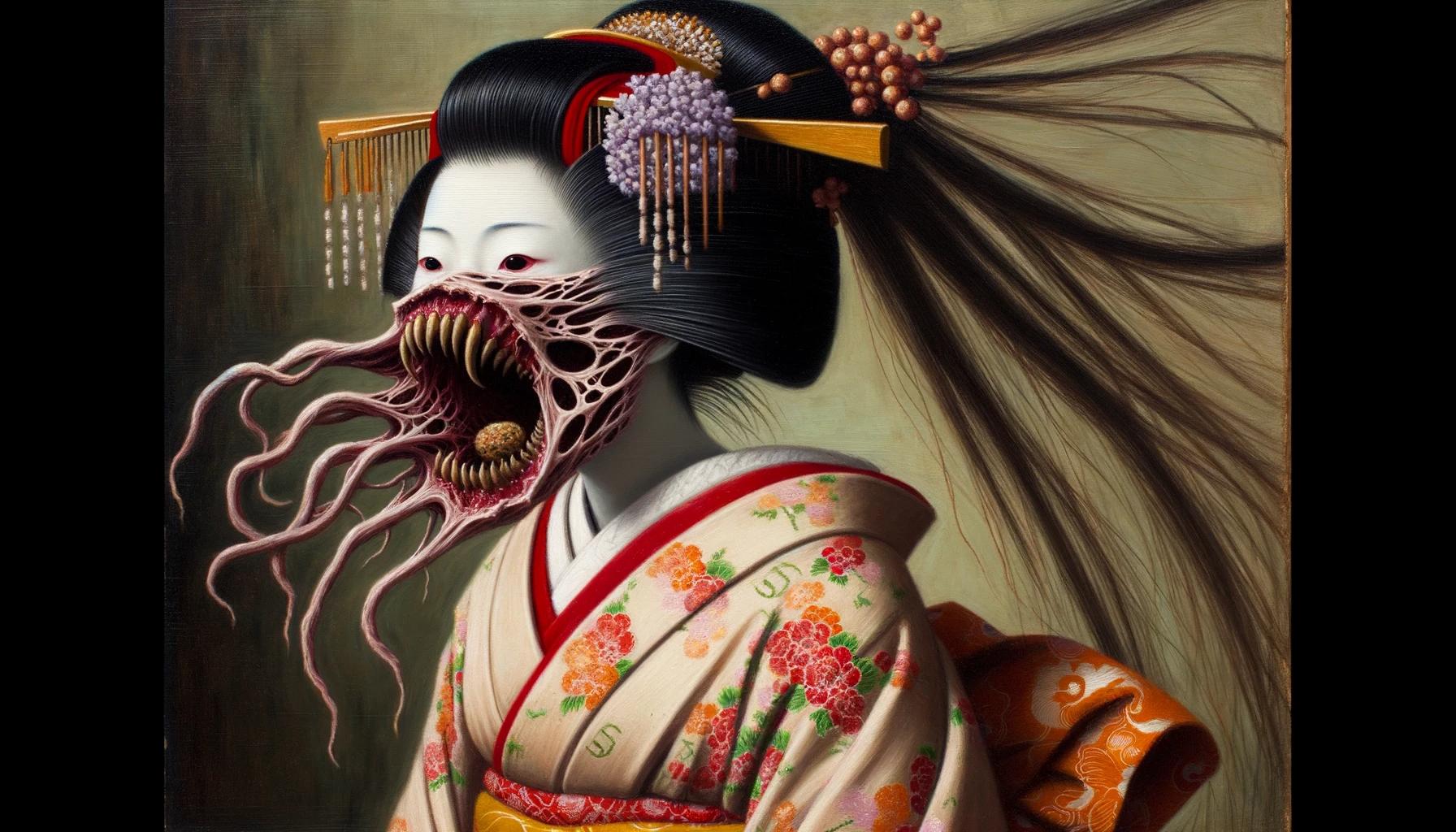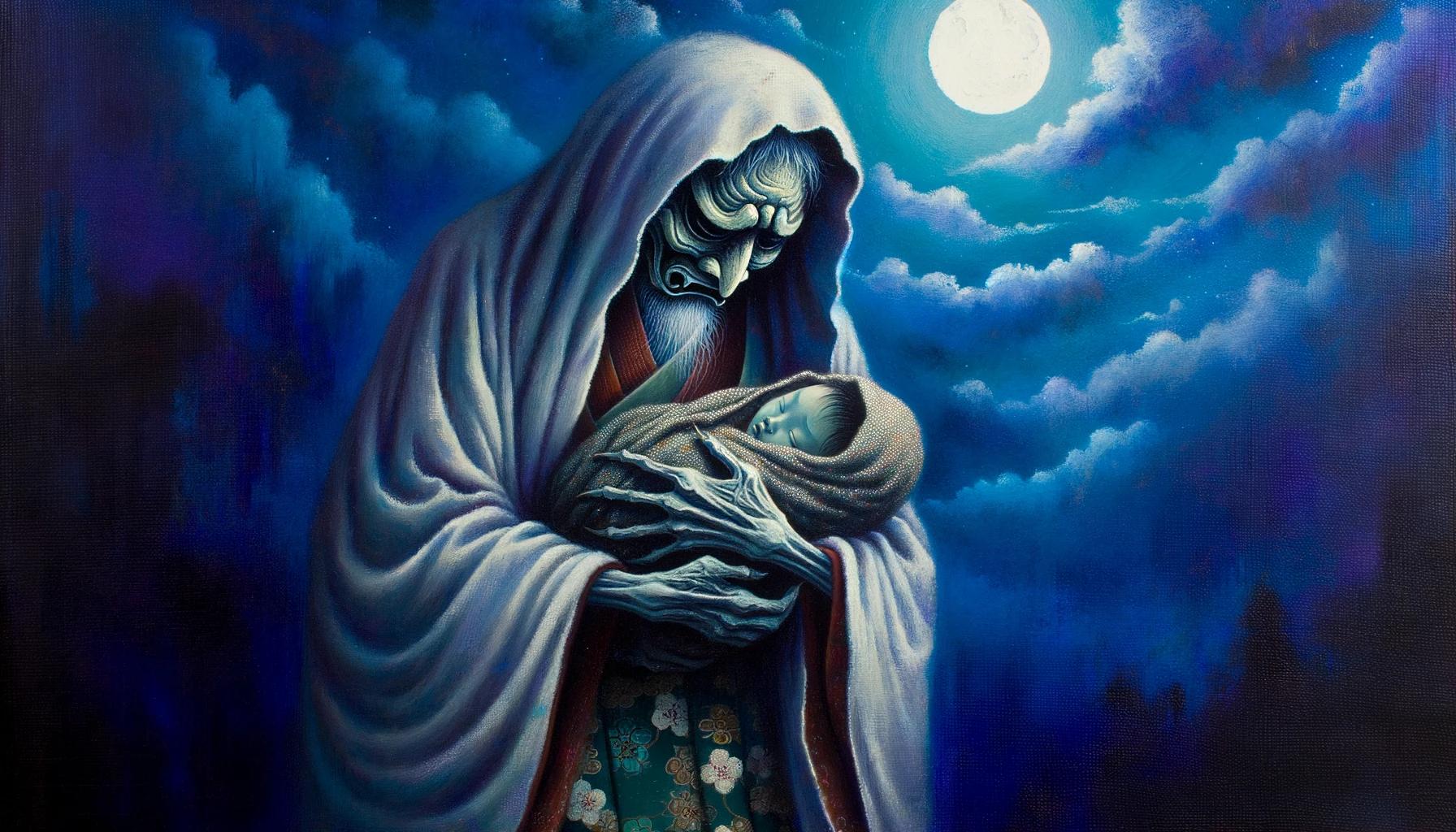Discover the Enigmatic Yamauba Mountain Witch: Legends, Folklore, and Cultural Significance in Japan
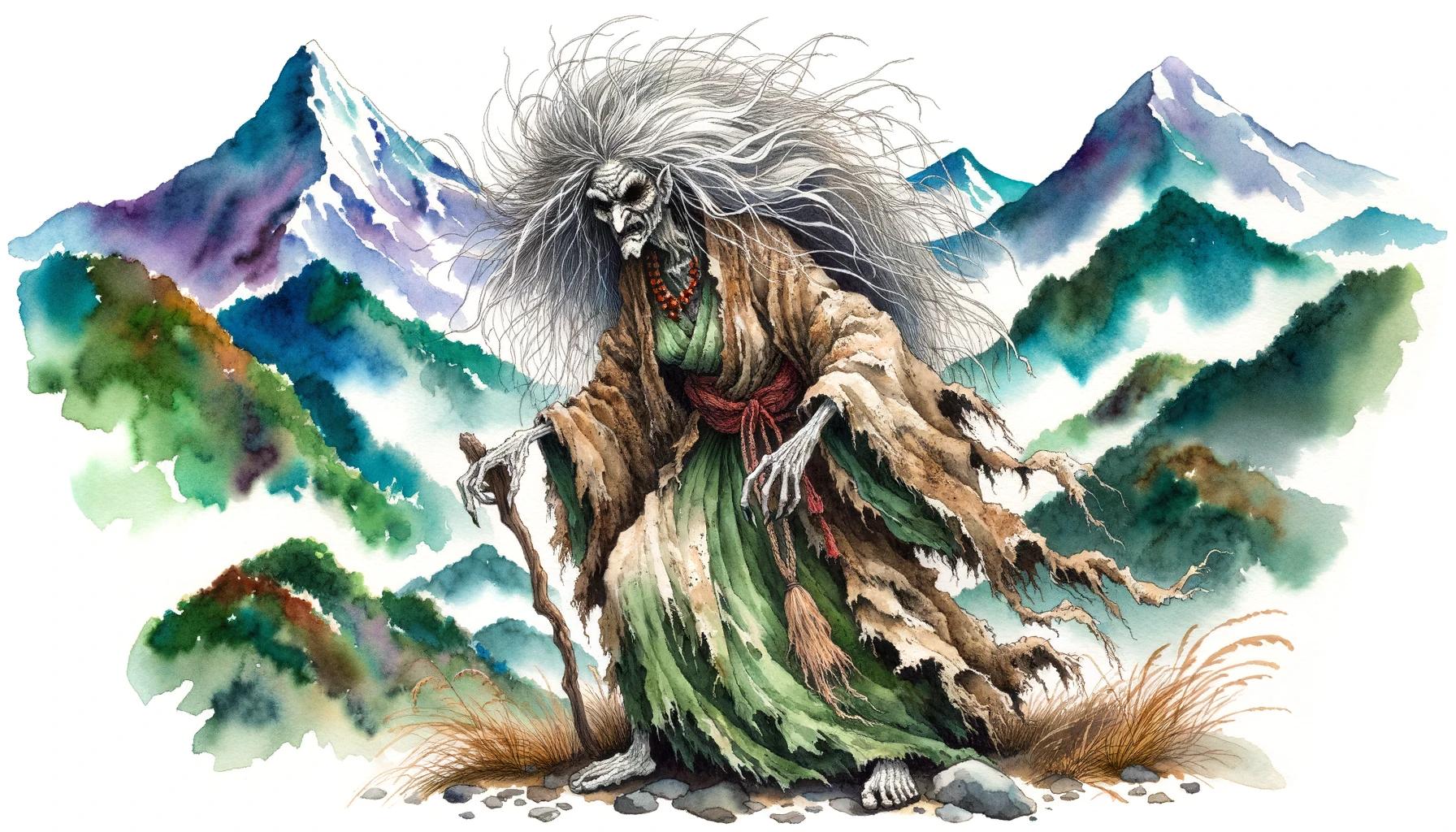
Yamauba mountain witch is a fascinating creature from Japanese folklore. These ancient women, corrupted and transformed into monsters, dwell in the mountains and forests of Japan. Often appearing as kind-hearted old women, they reveal their true demonic form at night, using powerful magic to trap and devour unsuspecting travelers.
Stories of encounters with Yamauba have been passed down as cautionary tales, warning misbehaving children of the consequences. This article explores the origins, appearance, encounters, and cultural significance of Yamauba, as well as its presence in modern Japan’s literature, entertainment, and gender studies.
Origins and Legends of Yamauba
Yamauba, also known as the mountain witch, is a fascinating Yokai creature deeply rooted in Japanese legends and folklore. Let’s explore the intriguing origins behind this enigmatic being and its prominent role in Japanese culture.
The Transformation of Women into Yamauba
One captivating aspect of Yamauba’s mythology is the transformation of women into these monstrous beings. Young women accused of crimes or misdeeds often fled to desolate areas and lived in exile, gradually undergoing a transformation into Yamauba over the years.
Ancient Customs and Sacrifices
In times of famine or economic hardship, families faced difficult choices to survive. It was not uncommon for families to make the painful decision to sacrifice a member so that others could live.
Often, newborns or the elderly were chosen as sacrifices. Some families would abandon their mothers deep in the forest, leaving them to die. These abandoned older women, fueled by rage or desperation, would transform into the horrid monsters known as Yamauba, feeding on humans and practicing black magic.
Yamauba in Japanese Folklore and Literature
The legends and tales of Yamauba have been passed down through generations, captivating the minds of storytellers and listeners alike. These stories of encounters with Yamauba serve as cautionary tales, warning the mischievous and disobedient.
They have become deeply ingrained in Japanese folklore, inspiring various works of literature, both traditional and contemporary, that explore their nature and impact on society.
Yamauba’s prominence in Japanese culture is a testament to the enduring fascination with supernatural entities and the rich tapestry of traditional folklore.
Appearance and Nature of Yamauba
The Yamauba mountain witch is a fascinating creature with a dual nature. At first glance, she appears as a gentle old woman, disguising her true form and intentions. This deceptive beauty allows her to gain the trust of unsuspecting travelers, luring them into a false sense of security.
Deceptive Beauty: The Gentle Old Woman
Yamauba’s deceptive beauty is her most prominent attribute. With a warm smile and caring demeanor, she hides her monstrous nature beneath a gentle facade. There are no visible signs of her evil intentions, as she resembles an ordinary elderly woman, often offering shelter and hospitality to weary travelers.
Yamauba’s Alluring Disguise
Using her magical powers, Yamauba can create an illusion of beauty that masks her true form. She appears as a kind, grandmotherly figure, with a nurturing presence that puts people at ease.
Her charms often captivate those who encounter her, making it difficult to escape her clutches.
The Temptation and Trust
Yamauba employs her captivating presence to gain the trust of her victims. She exploits their vulnerability, offering comfort, food, and shelter along their journey. The unsuspecting travelers, unaware of the impending danger, unknowingly accept her hospitality, falling deeper into her trap.
Unveiling the True Form: Ugly and Demonic Witch
When the time is right, Yamauba discards her benevolent facade, revealing her true form as an ugly and demonic witch. In an instant, her face contorts, her body transforms, and her true intentions become evident.
A Horrifying Transformation
With her disguise stripped away, Yamauba showcases her hideous features. She possesses a haggard appearance, with warts, wild hair, tattered clothes, and a sinister grin that sends chills down the spines of those who behold her.
Her true form reflects the darkness within her soul.
The Presence of Evil
Yamauba’s demonic nature is evident in her piercing gaze, filled with malice and hunger. Her twisted figure, coupled with her menacing aura, instills fear and dread in her victims, leaving them paralyzed with terror.
Yamauba’s Magical Abilities and Powers
As a powerful witch, Yamauba possesses a range of supernatural abilities and magical powers that aid her in capturing and consuming her prey.
Cunning Manipulation
Yamauba is skilled in the art of manipulation, using her deceptive charm, soothing voice, and persuasive tactics to control the minds of those in her presence. She preys upon their vulnerabilities and fears, trapping them in her web of deceit.
Dark Magic and Spells
Yamauba’s mastery of dark magic grants her formidable abilities. She employs spells to immobilize her victims, rendering them helpless against her malevolent intentions. Through incantations and rituals, she taps into ancient and forbidden powers.
Shape-Shifting and Illusions
One of Yamauba’s most renowned abilities is her talent for shape-shifting and creating illusions. She can transform into animals, objects, or even mimic the appearance of loved ones, further ensnaring her prey and obscuring their escape routes.
In conclusion, Yamauba’s appearance and nature are a captivating blend of deception, inner darkness, and powerful magic. From her gentle old woman disguise to her terrifying true form and magical prowess, Yamauba remains an enigmatic and formidable presence in Japanese folklore and cultural imagination.
Encounters with Yamauba
Tales of Escaped Travelers
Countless tales have been passed down through generations, recounting the harrowing encounters of those fortunate enough to escape the clutches of Yamauba. These stories serve as cautionary warnings, reminding travelers to remain vigilant and cautious while venturing through the mountains and forests of Japan.
Yamauba’s Tactics and Capture Attempts
Yamauba, disguised as kind elderly women, lull their unsuspecting guests into a false sense of security. As night falls and the travelers succumb to sleep, Yamauba reveals her true form, a hideous and demonic witch.
Using powerful magic, she attempts to capture and consume her helpless victims.
Survivors’ Stories and Lessons
The fortunate few who have managed to escape Yamauba’s clutches have shared their haunting stories. These survivors emphasize the importance of remaining vigilant, trusting one’s instincts, and avoiding isolated areas where Yamauba is known to reside.
Their tales serve as cautionary lessons for those who dare to venture into the depths of the mountains.
Finalizando, this section delves into the encounters with the Yamauba mountain witch, portraying the terrifying experiences of those who narrowly escaped her grasp.
Through tales of escapades, discussions on Yamauba’s tactics, and the lessons learned from survivors, a vivid understanding of the dangers posed by this monstrous creature emerges.
Cultural Significance of Yamauba
The Yamauba mountain witch holds a significant place in Japanese culture, appearing in various forms of storytelling and research. From children’s tales to gender studies, Yamauba’s presence is seen as a vehicle for moral lessons, a subject of exploration in literature, manga, and anime, and an object of study in the realms of gender studies and folklore research.
Yamauba in Children’s Tales and Moral Lessons
Yamauba has become a popular figure in children’s tales, serving as a cautionary character teaching important lessons about obedience and the consequences of disobedience. These tales warn young ones to behave, often using the threat of Yamauba’s wrathful appearance.
The yamauba is a symbol of the repercussions of straying from the path of righteousness and serves as a reminder to children to uphold moral values.
Depiction in Japanese Literature, Manga, and Anime
The Yamauba mountain witch has been featured extensively in Japanese literature, manga, and anime.
Renowned authors and artists have crafted compelling narratives around Yamauba, incorporating her into stories that explore themes of transformation, power, and the blurred line between good and evil. By capturing the imagination of readers and viewers, Yamauba has become ingrained in Japanese popular culture, contributing to a unique tapestry of folklore and fiction.
Yamauba’s Role in Japanese Gender Studies and Folklore Research
Yamauba’s presence extends beyond storytelling, attracting the attention of scholars in various academic disciplines. In the field of gender studies, Yamauba serves as a fascinating subject of analysis, representing the complexities of female power and the societal perception of aging women.
Folklore researchers also delve into the origins and evolution of Yamauba as a mythical creature, exploring her cultural significance and continued relevance in contemporary Japanese society.
Yamauba Mountain Witch in Modern Japan
Yamauba Mountain Witch continues to captivate modern Japan with its dark allure and mystical nature.
In this section, we explore the contemporary perceptions and beliefs surrounding Yamauba, its presence in art, performances, and media, as well as its significant influence on Japanese popular culture.
Contemporary Perceptions and Beliefs
Despite belonging to ancient folklore, the concept of Yamauba still resonates with the modern Japanese society.
These days, Yamauba is often viewed as a symbol of both fear and fascination, representing the hidden darkness that exists within human nature. Many perceive Yamauba as a cautionary reminder of the consequences that arise from greed, desperation, and unchecked desires.
Yamauba in Art, Performances, and Media
Yamauba’s eerie presence has carved a place for itself in various forms of artistic expression. From traditional paintings and sculptures to contemporary multimedia installations, artists have drawn inspiration from Yamauba’s mystique to explore themes of transformation, duality, and the power dynamics between humans and nature.
Besides visual art, Yamauba also finds its way onto the stage and screen. The traditional performing arts, such as Noh and Kabuki, often incorporate Yamauba as a character, allowing actors to portray the complexities of her dual nature and the emotions associated with her existence.
Additionally, Yamauba has become a staple in modern Japanese literature, manga, and anime, enticing audiences with her captivating persona and dark, supernatural abilities.
The Influence of Yamauba on Japanese Pop Culture
The influence of Yamauba extends beyond art and entertainment, permeating into various aspects of Japanese popular culture.
In fashion, Yamauba’s aesthetic elements, such as her disheveled hair, tattered clothing, and mysterious allure, have inspired designers, resulting in unique fashion trends that embrace the fusion of tradition and modernity.
Moreover, Yamauba’s essence has also seeped into the realm of video games, where she appears as a formidable enemy or a complex character. Her presence adds an element of intrigue and suspense, and players often encounter Yamauba as a challenging boss figure, enhancing the overall gaming experience.
In summary, Yamauba Mountain Witch continues to captivate modern Japan, with its enduring presence in art, performances, media, and pop culture. Its ever-evolving symbolism speaks to the timeless themes of humanity, temptation, and the delicate balance between good and evil.
.












